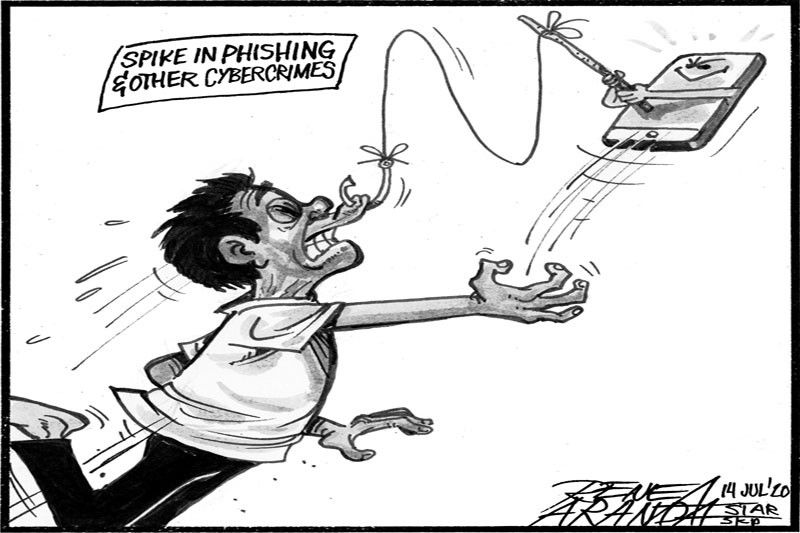EDITORIAL - Phishing season

Anyone with a cellular phone or computer has received messages offering a prize, soft loan facility, product or service while seeking sensitive personal information from the user.
Most people know enough to reject the messages. But there are still many who are victimized by the cyber crime called phishing, especially when the message comes from someone posing as a major organization or legitimate institution. The crooks can pose as the user’s bank, internet service provider or telecommunications provider, and succeed in getting the user to give passwords, banking and credit card details.
Information gathered by the Department of Justice’s Office of Cybercime from March to June, while the country was under various degrees of community quarantine to contain the COVID pandemic, showed that phishing has overtaken online sexual exploitation of children as the top criminal activity in cyberspace. The OCC said online selling scams and dissemination of fake news or disinformation followed closely.
Because of the COVID lockdowns, online communication and transactions have surged, and fraudsters have pounced. The problem has become so bad that an official of the National Bureau of Investigation called the COVID pandemic “phishing season.”
While many people have become tech-savvy enough to foil phishing attacks, others need help. Internet service providers, telcos and social media companies need to beef up capabilities to protect users from phishing and other forms of fraud. Banks and companies engaged in ecommerce should do the same. With people increasingly relying on online transactions amid the pandemic, government agencies must also ramp up capabilities to detect and prevent cyber crimes as well as apprehend their purveyors.
- Latest
- Trending


























